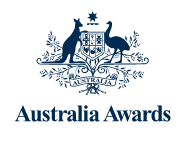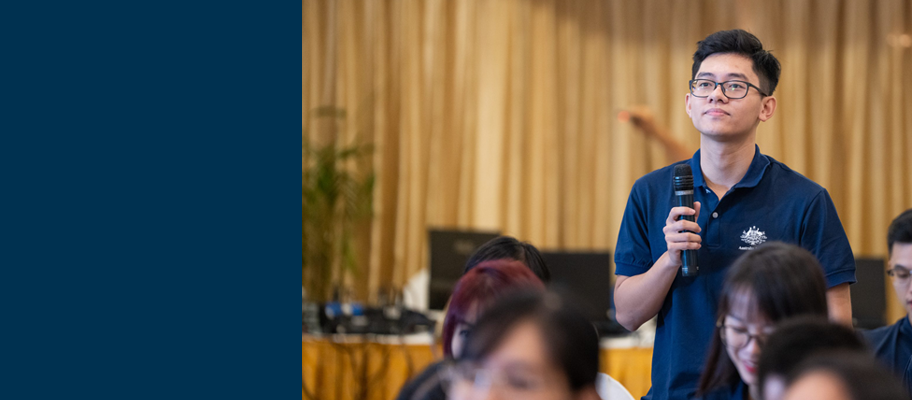Accommodation can be one of the biggest challenges all students face. There are plenty of housing types to choose from, including on-campus, home-stay and private rental, but these fill up quickly. Please see here for information on accommodation in Australia.
The Australian Government will arrange and pay for your economy class airfare to Australia. The Australia Awards office in Vietnam will arrange your travel from Vietnam and will ensure that awardees arrive on or after the recommended date of arrival as specified in the institution’s placement offer. Return to Vietnam at the end of your travel will be arranged by your institution.
If you qualify for a reunion airfare (unaccompanied in Australia and enrolled for a minimum of two academic years in Australia, including in-Australia preparatory programs), you should contact your Student Contact Officer to arrange travel. Reunion airfares should be used during semester breaks. If you wish to use your reunion break during semester, you must provide the Student Contact Officer with written approval from your faculty or research supervisor for the period of travel, and assurance that it will not interfere with your study program. Your institution will arrange the reunion travel for you.
Please see here for more information on travel arrangements.
All scholars must travel on Student visa (subclass 500). Please see here for more information on visas.
Breaching visa conditions, such as working more than the allowed number of hours, may result in your visa being cancelled. It is your responsibility to make sure you have a valid passport and visa while you are studying in Australia. If you have any issues in Australia, see your Student Contact Officer as soon as possible.
You are strongly encouraged not to bring your family members to Australia in the first six months of study. The first semester of study will be busy and demanding, and you will need to focus on your studies and settling in to Australia. It is better to attend the compulsory Introductory Academic Program and become established in your program of studies without the distraction of family responsibilities.
If you decide to bring your family to Australia, contact your Student Contact Officer for information about accommodation, as well as schooling and childcare for dependents. You should contact the Department of Home Affairs for information about visa requirements for accompanying family.
Documents that you should bring are listed here.
Other documents that could be useful for you, and your family if they join you in Australia, include:
- Birth certificates
- Vaccination logbook/record of immunisation history for your children
- Your marriage certificate
- Academic records
- Job references
Yes. You should have at least $500 Australian dollars when you arrive to cover costs such as food and temporary accommodation. Please see here for more information on arriving in Australia.
Please see here for information regarding luggage allowances and limits, and check with your airline for what applies to you.
Be sure to pack for the season and your destination’s climate. If you are arriving in Townsville in summer for example, you won’t need warm clothing. If you are arriving in Melbourne in winter however, then warm clothes will be essential.
Remember, you will be able to buy most, if not all the items that you need in Australia, including clothing and household goods.
Yes. Australia has strict quarantine laws to protect our native plants, animals and agriculture against pests and diseases. Please see here for information on quarantine arrangements that apply to all travellers to Australia and mail items.
Refer to the Arriving in Australia– Declare it! site for a full list of items you have to declare.
Yes. Please see here for information on healthcare information.
No. If your family travels to Australia, you will need to purchase health insurance for them. Your Student Contact Officer will be able to provide you with information on health insurance for your family or visit the Department of Home Affairs.
Please see here for information on bringing your family and children to Australia. You should make arrangements as early as possible. Your Student Contact Officer will be able to provide advice on schools and childcare providers near your institution.
Many students experience emotional turmoil as they adjust to life in Australia, or on return to Vietnam. Educational institutions are aware of this reaction and can help you manage it, for example through on-campus counselling services.
Remember that you are not alone and there is help available for you. The first thing you should do is talk to your Student Contact Officer. They will be able to talk to you about your feelings and advise you on actions that will help you feel better.
Keep in contact with your family through email, Skype, Facebook, telephone and other social networks.
Australian universities have active social lives and many people from different cultures and countries. There will be plenty of people eager to make friends once you get into university life.
Do not be afraid to approach people and strike up a conversation. Being proactive and meeting different people on campus and in the community can lead to rewarding friendships and support. Options for meeting people include joining a campus club, doing volunteer work, playing sport or moving into shared accommodation.
Yes. You and dependent family members travelling with you are allowed to work. You do not need to apply separately for a work permit. However, we advise against working during term as it could disrupt your studies. Please see here for more information on working in Australia.
Let the Australia Awards office in Vietnam know in advance if you have special requirements as these can easily be arranged for you. You should also advise your Student Contact Officer, either when you arrive in Australia or later if you encounter difficulties.
Your institution is required to provide on-campus support and ensure access and equity for all students, including those with disability. The Australian Government will provide off-campus support for students with disability.
Generally, if you have a disability, you will find services and facilities in Australia are well planned and easy to access. Australians are helpful and easy going, and do not discriminate against those with disability. Most community-based services and facilities, including public transport, restaurants, shopping centres and public libraries, are accessible for people with disability.




